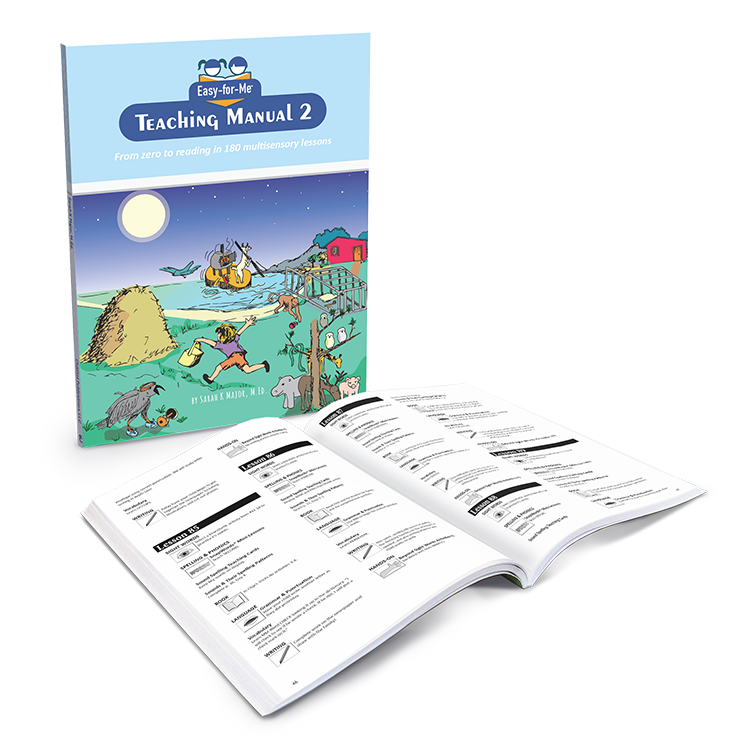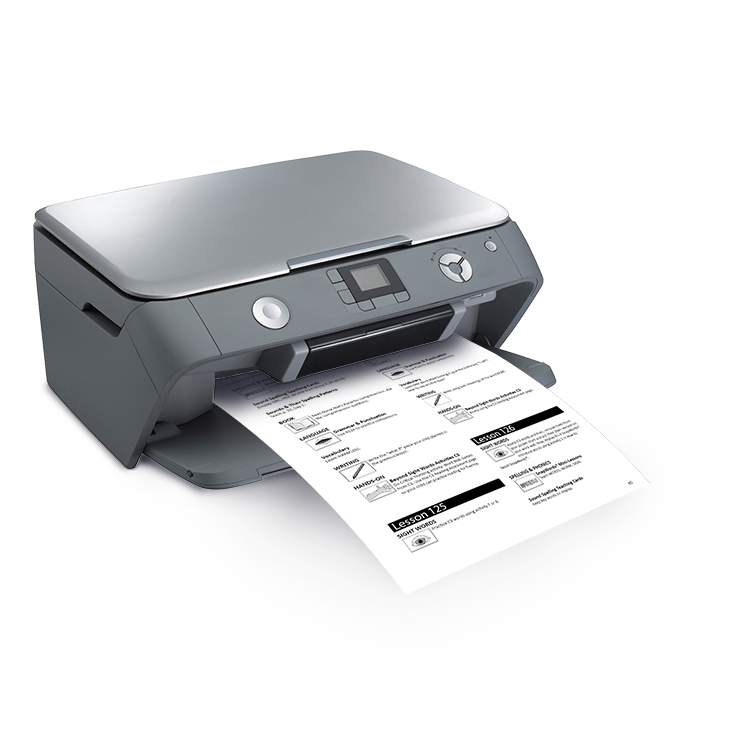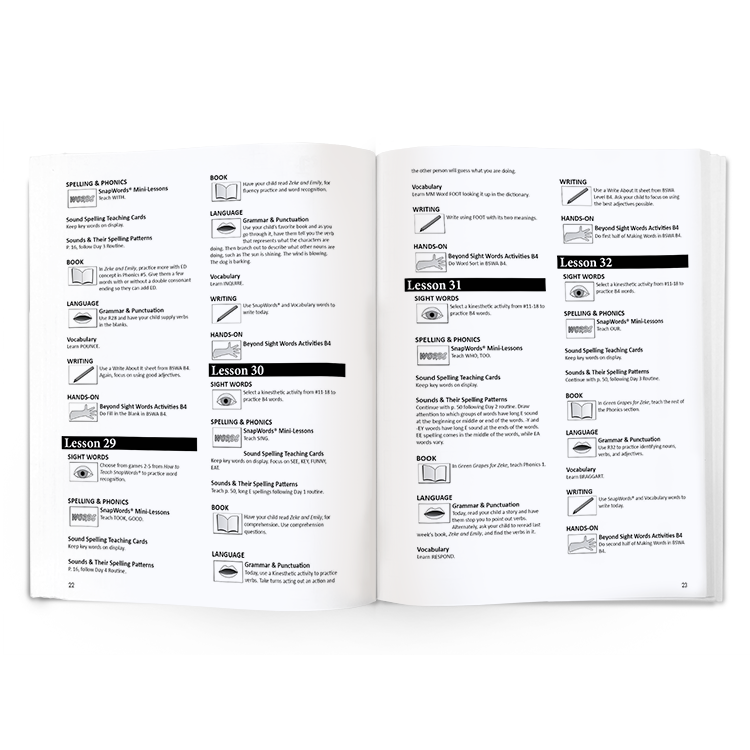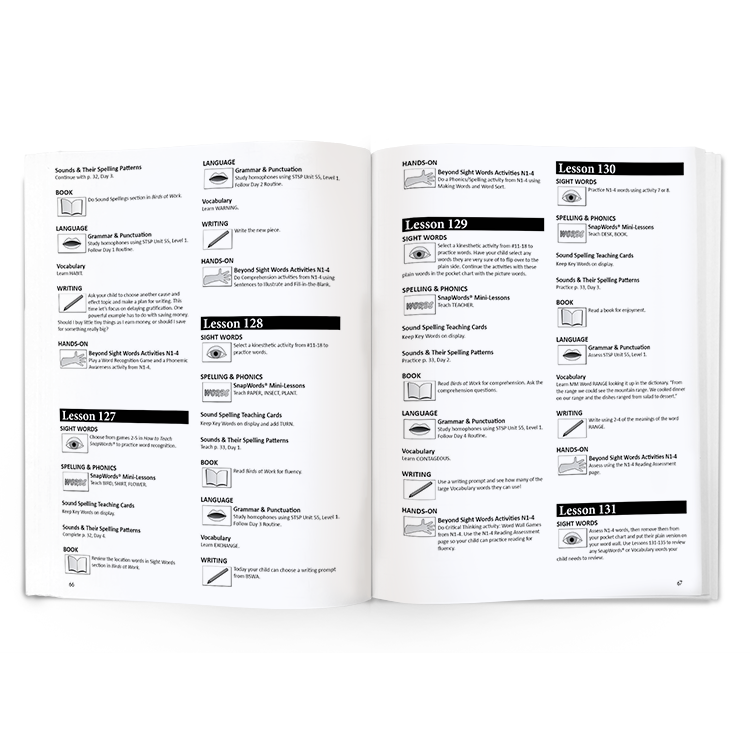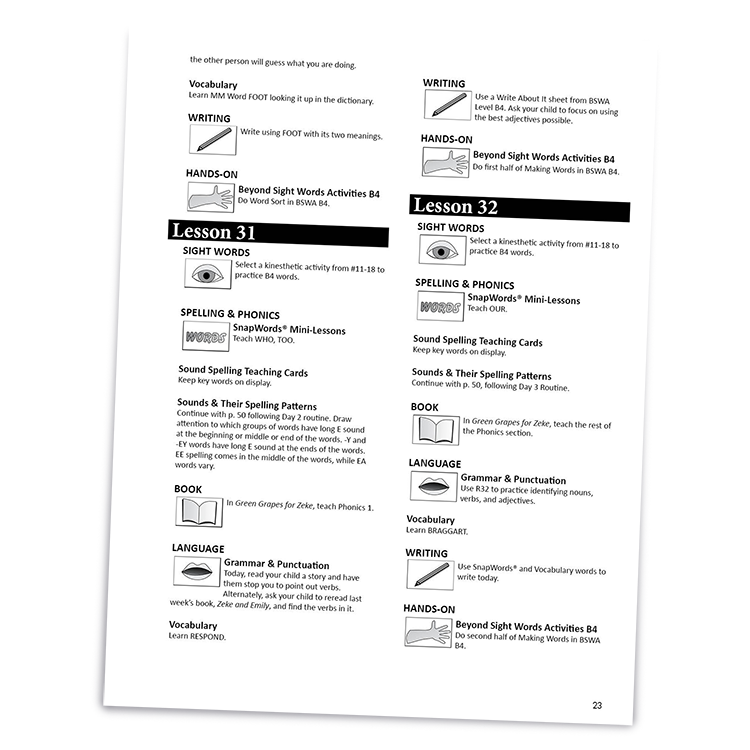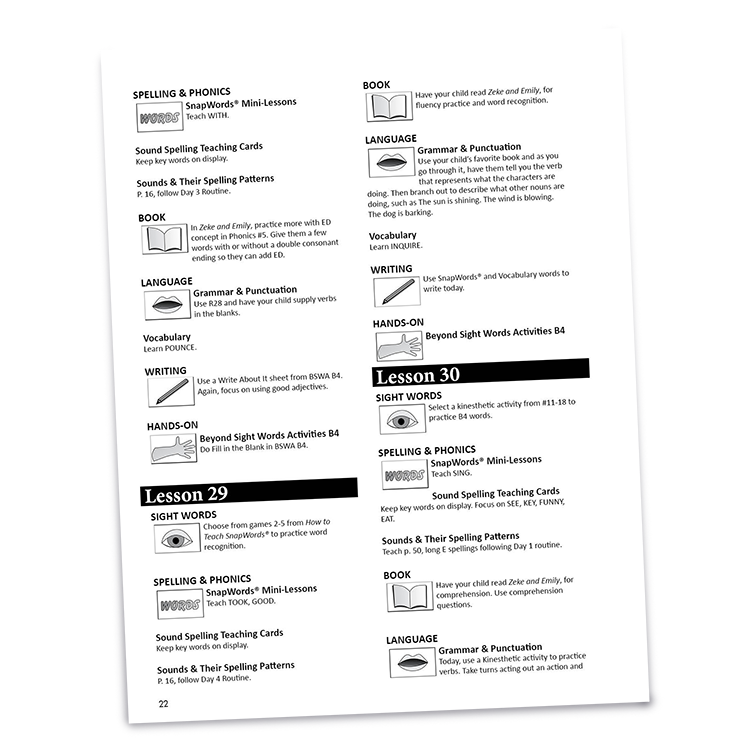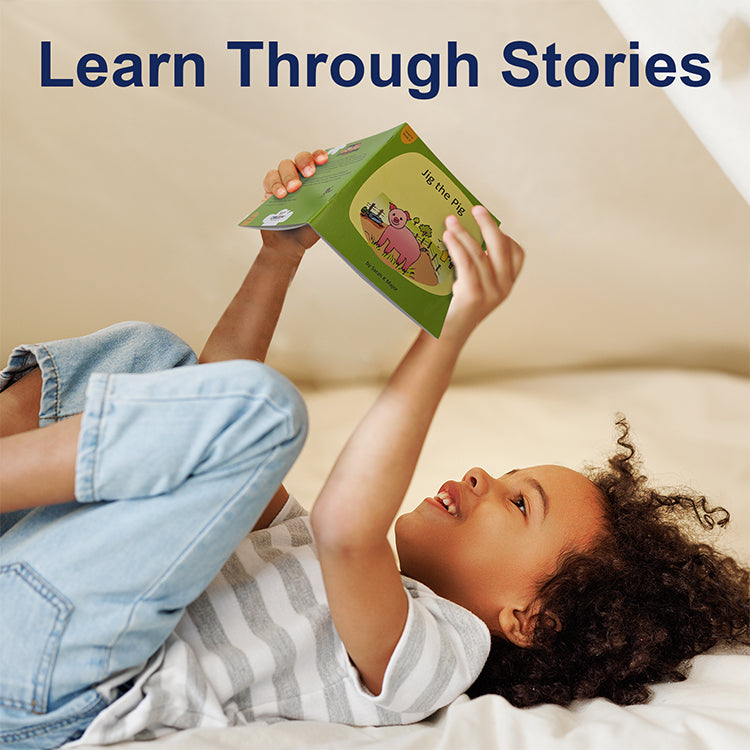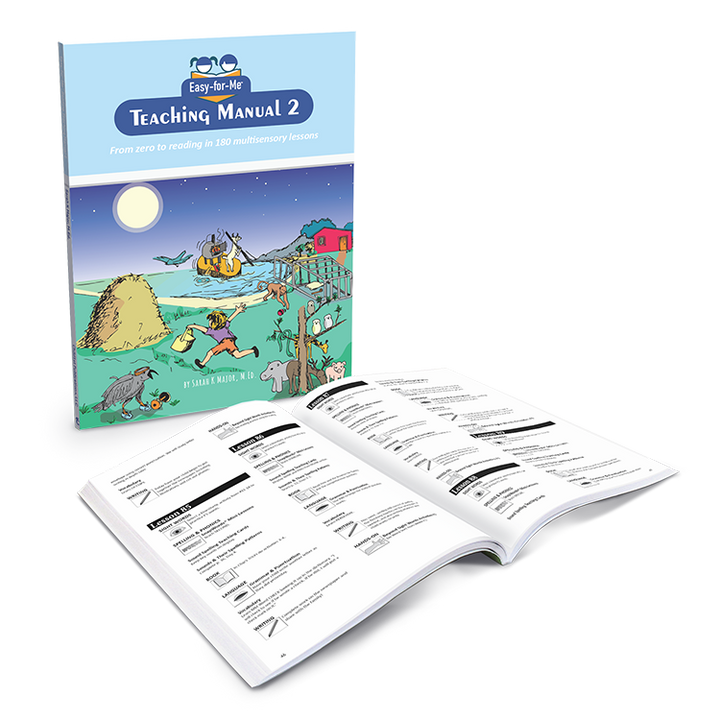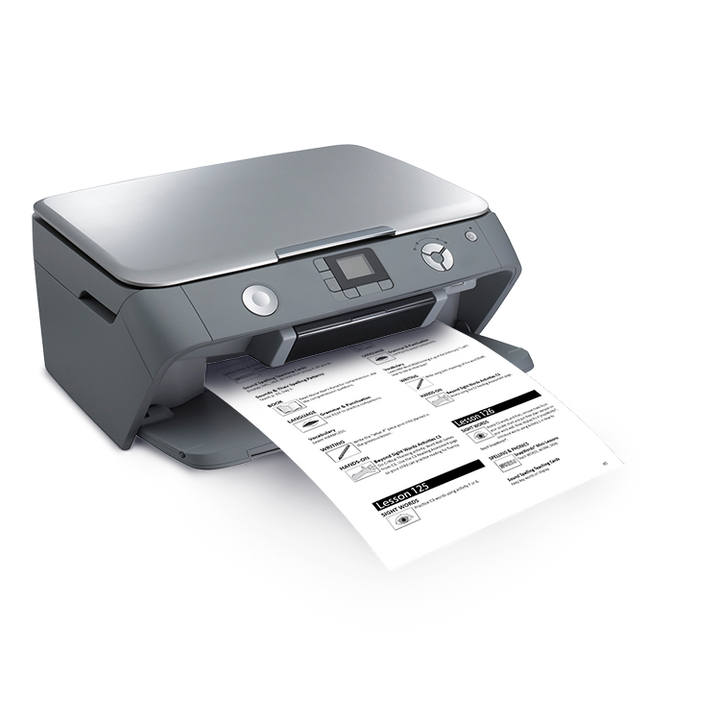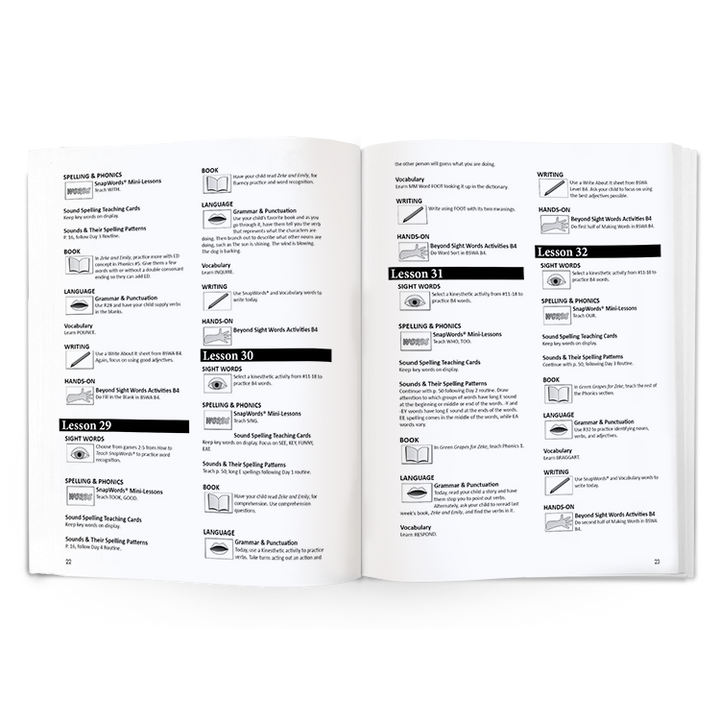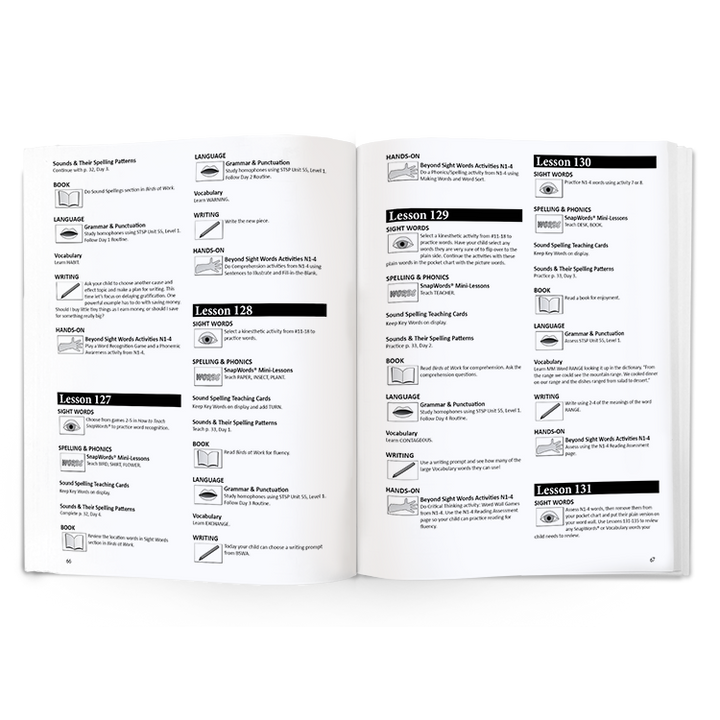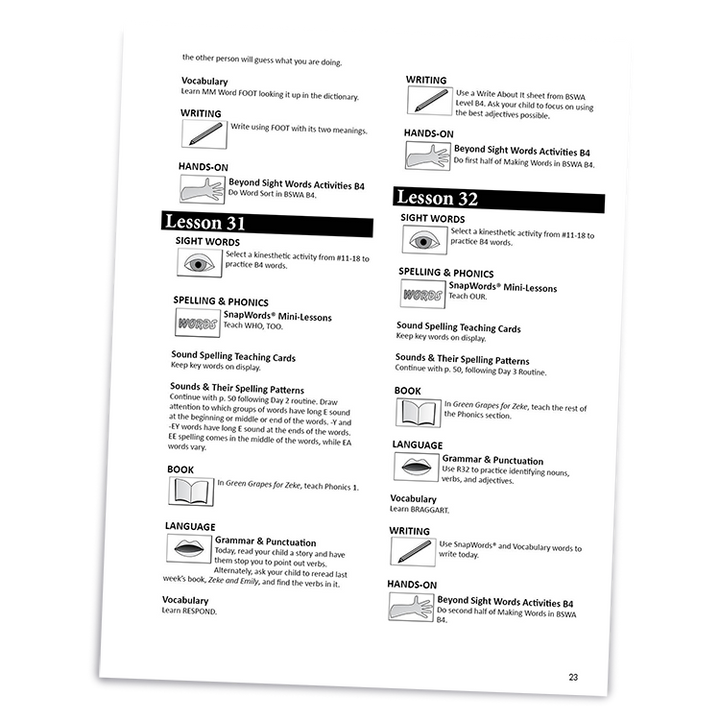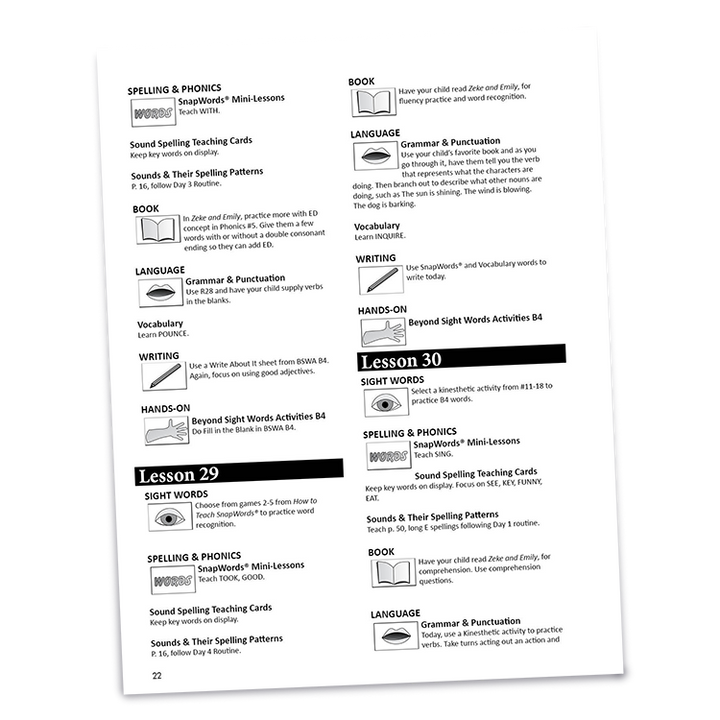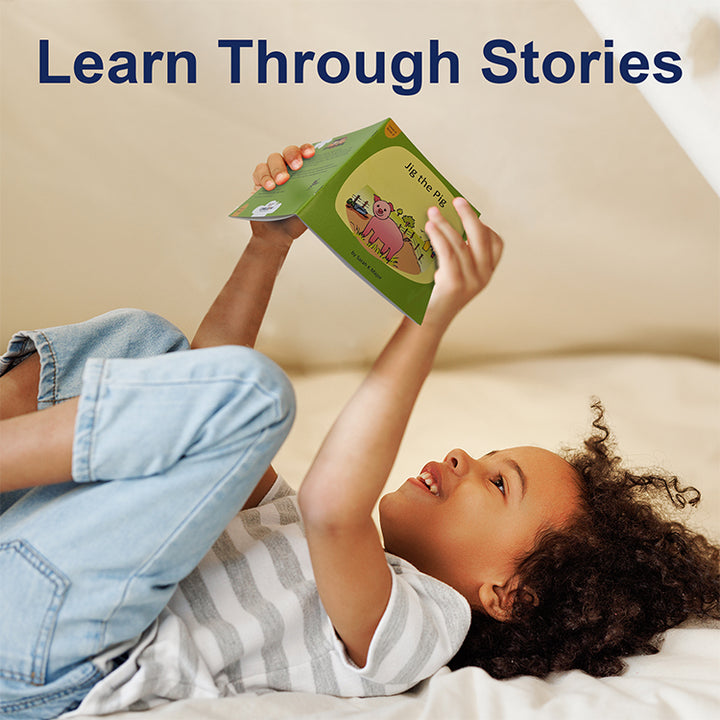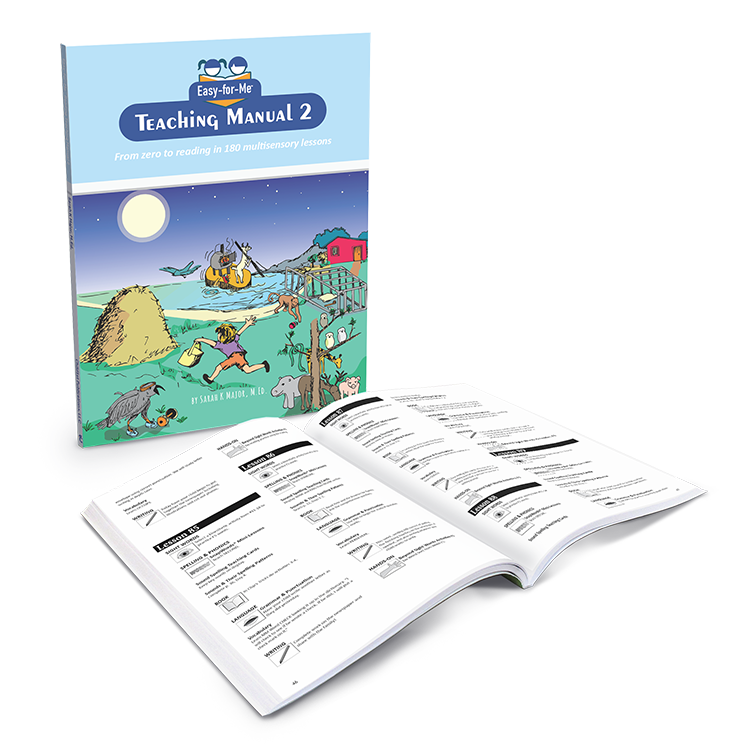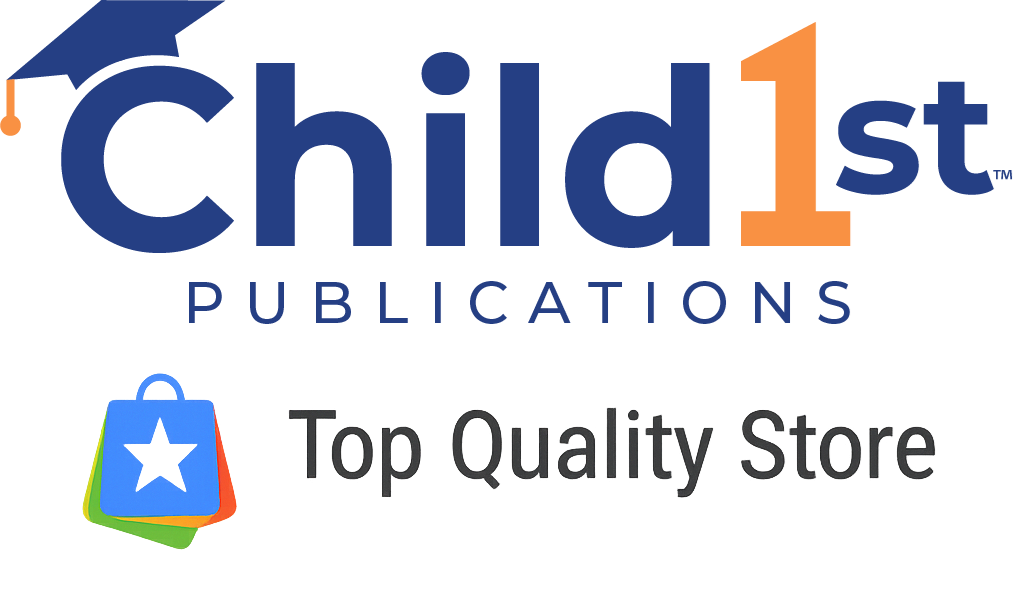The Easy-for-Me™ Teaching Manual 2 comprises 180 self-paced lessons, meticulously detailed for easy implementation without requiring specialized educational expertise. All necessary resources and assessments are conveniently provided in printable PDF format for your convenience. This manual expertly guides you through the instruction of The Illustrated Book of Sounds & Their Spelling Patterns, Sound Spelling Teaching Cards, four SnapWords® lists, Easy-for-Me™ Children's Readers Sets B & C, and Beyond Sight Words Activities, ensuring a comprehensive and effective teaching experience. It’s the ideal tool to guide your child from early reading to a 3rd-grade level.
What’s Included
- Easy-for-Me™ Teaching Manual 2
- 88 pages covering 180 lessons
- Download of Resources, Assessments, & Vocabulary 160 total pages
Pacing
In the Easy-for-Me™ Teaching Manual 2, there are a total of 180 lessons provided. While ideally, one lesson could be taught per day, it's important to be flexible and responsive to your child's pace. Some lessons may be effortlessly grasped, while others might require additional time and practice. Observing your child's progress and understanding is key, allowing you to tailor the pace of instruction accordingly.
Whether you progress more quickly or take a bit more time, what matters most is ensuring comprehension and mastery of each skill. During assessments, it's crucial to identify any areas of difficulty and take the time to reteach them. Skipping over misunderstood concepts can lead to accumulation of gaps in knowledge over time. Therefore, it's preferable to proceed at a slower pace to ensure thorough understanding and mastery of all concepts presented.
Kinesthetic Connections
Throughout the lessons, you'll find a variety of kinesthetic activities integrated into the lessons. These activities are not only beneficial for kinesthetic learners but also for tactile and visual learners. By incorporating visual elements, storytelling, and physical movement into the lessons, you can enhance your child's learning experience and ensure better retention of the material. Emphasizing these components will contribute significantly to your child's ability to learn and retain the concepts being taught, leading to more permanent learning outcomes.
Resources
Before embarking on the teaching journey outlined in this manual, it's essential to familiarize yourself with each resource you'll be utilizing. This includes:
SnapWords®, Mini-Lessons, & Beyond Sight Words Activities
· These resources offer an effective approach to teaching sight words, utilizing visual and kinesthetic techniques for easy recall. They cover phonics concepts and word families, fostering visualization, correct usage, and critical reading skills including comprehension, writing, spelling, phonemic awareness, word recognition, fluency, and critical thinking.
Easy-for-Me™ Children’s Readers
· EFM Children’s Readers stand out for their dual focus on sight words and phonics concepts, providing comprehensive reading practice. Each book features teacher guides in the front, ensuring children are well-prepared to read. Additionally, comprehension questions are included to reinforce understanding. With leveled books meticulously designed to address key concepts, these readers effectively close learning gaps as children progress in their reading journey.
Sound Spelling Teaching Cards & The Illustrated Book of Sounds & Their Spelling Patterns
· These resources simplify decoding irregular spellings, enhancing reading, spelling, and comprehension. Through interactive lessons, students master language in an engaging, visually stimulating way, making them valuable for teaching phonics, spelling, and vocabulary.
Resources & Vocabulary
· These resources offer hands-on practice, assessments, and vocabulary enrichment, crucial for effective learning. They provide tangible experiences to deepen understanding, assess progress, and enhance vocabulary skills, promoting academic success.



